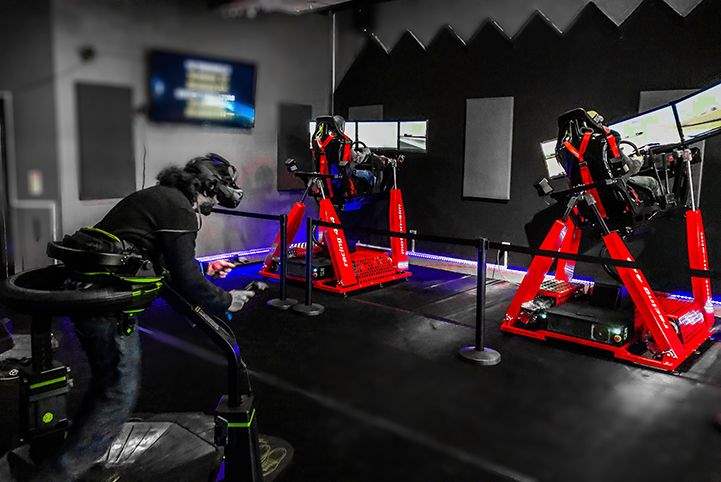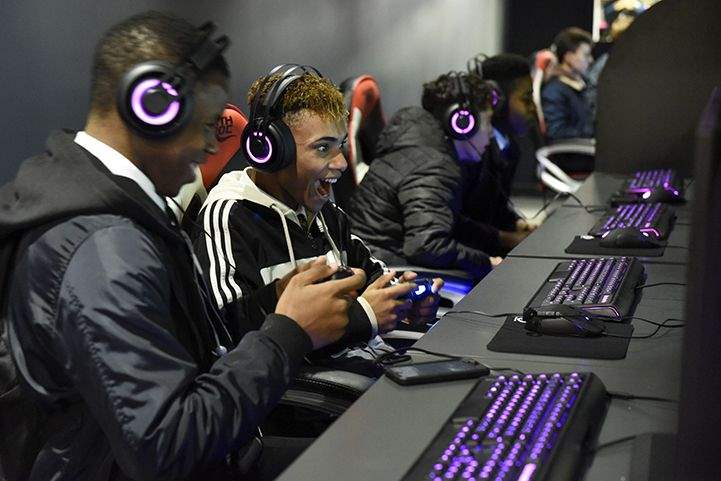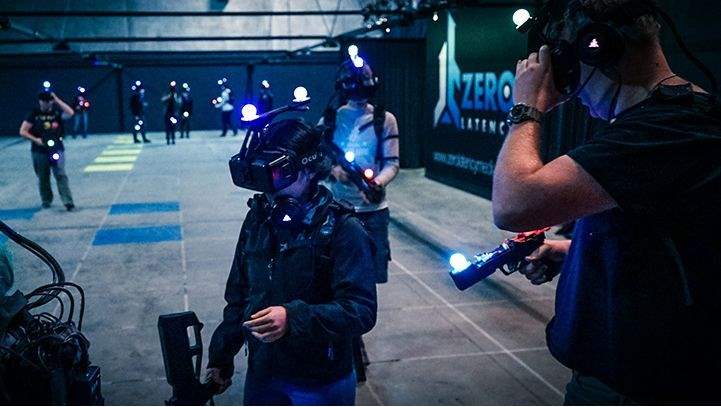VR has been around for decades, but never really taken off. This is changing fast as the tech is advancing at a rate of knots, with several brands now vying for space
Concept
VR venues are growing rapidly across the globe; there are reportedly over 3,000 venues in China alone. In the UK Savills has identified over 50 locations and 40 operators in major regional cities and many others will have fallen below our radar. National provision is estimated to have doubled since 2017 and will continue this trajectory as technology, concepts and brands develop. There are currently only 15 sites identified within institutional landlord schemes and few brands are genuinely looking for expansion as they are still trying to work out the market. This makes it a tough call for landlords who can see some potential in adding them to their line-up, but don’t know who to go with.
New independent operators are appearing all the time. Businesses typically offer multiple games, and experiences for up to 6 players. While great fun, the number of quality games is limited, particularly those offering multiplayer experiences, and this may reduce appeal for some. Low cost for participation is resulting in higher take-up from students than other emerging leisure concepts, wide family and Millennial appeal, but lower take up from urban professionals and corporate groups.
To date, most operators have utilised HTC Vive headset technology and the range of games available. This has given entrepreneurial enthusiasts the opportunity to buy kit at relatively affordable prices, so start-up costs can be low and space requirements to install each piece of kit are the size of a bedroom. However, with Vive Pro kit now available for under £1,000, it may not be long before consumers have these in their own home.
What sets some operators apart is those that can provide an experience that cannot be had at home as well as enabling a social experience. Technology is the key differentiator in this market, with the quality of experience evolving quickly.
When Immotion VR opened its first site in Bristol in March 2018, its first six weeks saw 4,000 visitors each paying £30 per hour
Savills Research
Operators
VRX Gaming’s offer in Bristol includes the Virtuix Omni Treadmill. It is the latest VR technology, which lets you walk through a virtual world whilst walking in the real world. When you step inside the treadmill you are secured on a harness and wear special shoes.
VR Simulators in Glasgow bills itself as Europe’s first 5D racing centre with full motion chairs and the ability to race against 12 others. There are even fans so you feel the wind in your face.
Manchester-based Immotion VR have been developing their own brand of simulators, driving machines, guns and cinema pods, which adds to the sensory experience with full motion feedback from the equipment. This significantly enhances the immersion into the experience. The consoles are aesthetically designed to appeal to a wide range of consumers and to look good in a shopping centre mall.
Immotion VR are arguably the only VR brand that has emerged to date in the UK and their statistics demonstrate how successful VR can be. The brand opened their first site in Cabot Circus in March 2018 and in the first six weeks saw 4,000 visitors each paying £30 per hour. Since then aggressive expansion plans have seen openings in 10 venues in major shopping centres in 2018 and a further 60 locations targeted in the UK as well as Europe, US and UAE. Recently a concession tie in has been agreed with Grosvenor Casinos. Shopping centre venues are a mixture of units and mid-mall pop-ups, the latter perhaps showing an experimental stage while both landlord and operator test the market.
One brand has recently opened its first UK venue in intu Nottingham, having already gained a global presence in 13 countries. Zero Latency's offer has an important differentiator from other UK operators in that players can 'free roam' around a large playing arena and interact with eight other players in the VR world.
.png)
Brand insights: Customer profile for VRX Gaming, Immotion VR and Virtual Hideout. 100% income comes from the game itself
Source: Savills Research
Benefits for landlords
Like other emerging leisure sectors, the often perceived view is that VR-arcades do not typically need to be in prime locations and can take units that might be compromised for other uses, offering opportunities for landlords to fill under-utilised space. Or do they? Several operators have indicated to us that less visible units are less effective than those that can tap into passing trade, with up to 95% of customers from ‘walk-ins’ rather than advanced online booking.
Opportunities for taking under-utilised space is perhaps more about creative marketing than visibility. Pop-ups may be good for gauging interest in the short term, but have limited longevity and do not provide a serious income to landlords. One advantage is that unit sizes required are small, with operators anticipating around 2,000–4,000 sqft. Kit is not fixed so actual fit out costs can be low and there is the potential for landlords to move the offer around. With new VR/AR tech in the coming years VRX see the potential to create a VRX Arena which will require 6,000 sqft to enhance group participation.
Complementing retail
Game are carving their own niche in group participation in the gaming sector with Belong, which provides gaming arenas in 21 Game store locations. This fast growing concept is fairly specialised and unique, appealing to regular gaming enthusiasts of which there is no shortage. There is already a global market in online gaming and people can play in the comfort of their own home, but Belong have identified that many gamers enjoy the benefit of social and tangible engagement with like-minded players. Each Belong venue runs its own mini-leagues, but players can also compete as a team against other venues. The brand is planning to expand across the Game store portfolio.
LOOK OUT FOR
VRX Gaming
One site so far in Bristol, but the operator really makes the most of technological developments in the VR sector, with excellent use of machinery that enhance the overall immersiveness of the experience.

VRX Gaming, Bristol
Belong
Tapping into a strong and loyal network of gamers, Belong have 21 arenas located in existing Game stores, building a community that can compete with each other or against other stores. More sites planned.

Belong, Birmingham
Zero Latency
This global leader in 'free-roam', multiplayer VR has 24 global locations in 13 countries. Up to eight players can play at the same time in a warehouse space where they are free to roam and interact. First UK site was intu Nottingham in 2018.

Zero Latency, Nottingham
Immotion VR
In just 12 months and already with 10 shopping centre sites in the bag, the operator has quickly become the UK's number one brand. Big plans for further expansion with operations already in Europe, US and UAE
Sandbox
Sandbox are in six countries in North America and Asia with three more opening in 2019. Significant investment and prominent international locations likely to help build a global presence, including UK.
.jpg)